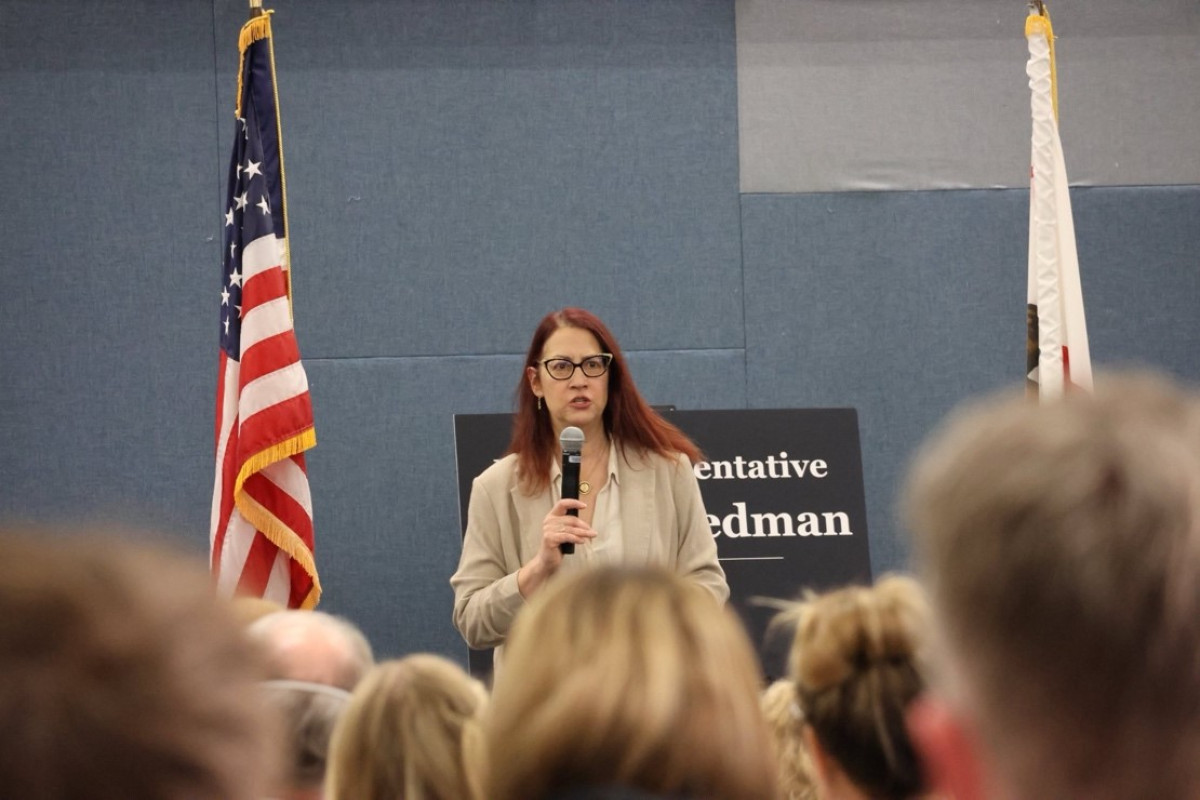NOTUS: The 'Big, Beautiful Bill' Has a Tiny Provision That Could Tax the Trump Legal Resistance

Congressional Republicans slipped a little-noticed measure into their massive “big, beautiful bill” that would make it exorbitantly expensive to sue the Trump administration, potentially invalidating dozens of injunctions halting White House actions and sucking even more power out of the nation’s courts.
On Tuesday, Democratic Rep. Laura Friedman wrote a letter to Speaker Mike Johnson signed by 20 other congressional Democrats expressing “deep concern” about the provision.
The letter, first obtained by NOTUS, warns that “this measure would significantly undermine the judiciary’s longstanding and constitutionally grounded authority to enforce contempt citations — a move that would weaken the separation of powers and pose serious risks to the rule of law in the United States.”
The provision is just a 63-word paragraph buried in the 1,116-page bill, which is intended to pass much of President Donald Trump’s domestic policy agenda. The vaguely titled “Restriction of Funds” would yank away the discretion normally exercised by federal judges over whether to collect a security bond from someone who sues before they consider intervening with a preliminary injunction or a temporary restraining order.
This measure addresses an issue that has vexed this White House since its start: Federal judges have not been demanding these tolls, allowing nonprofits and human rights lawyers to file a barrage of lawsuits that have blocked many of Trump’s executive orders. Federal judges across the country have halted the administration from mass firings, denying birthright citizenship and conducting rushed removals of migrants deemed “alien enemies” without due process. And when the administration appears to disregard court orders, judges have threatened to hold federal officials in contempt.
That enforcement mechanism, however, would be unraveled under the draft provision. It says that “no court of the United States may use appropriated funds to enforce a contempt citation for failure to comply with an injunction or temporary restraining order if no security was given when the injunction or order was issued.”
The policy is in keeping with Trump’s March 6 executive order, which sought to direct all federal agencies to request that anyone seeking an injunction provide a security “equal to the federal government’s potential costs and damages.”
Noah Brozinsky, a Washington-area attorney, described that presidential directive as “designed to scare parties against filing for injunctions against the United States.” On Tuesday, he told NOTUS the draft measure in the reconciliation bill would be “directly problematic.”
“That would be a tool to keep the little guy out of court and intimidate nonprofit organizations from asserting their rights,” he said.
Reps. Suzanne Bonamici, Pramila Jayapal and Rashida Tlaib were among the Democrats who signed the letter to Johnson, which argued that “130 school desegregation orders, ongoing civil rights cases, and critical regulatory cases could become unenforceable under this provision.”
In a March letter to Attorney General Pam Bondi, Senate Judiciary Chair Chuck Grassley said he was disappointed at the way judges have largely declined to impose these bonds on entities challenging national policies.
“Over the last decade, we have seen chaos unfold when individual district judges determine policy for the whole country. The courts should have been imposing injunction bonds on their own,” he wrote, lamenting how “in the 1960s, courts started to ignore the plain language of Rule 65 to craft a ‘public interest exception,’ which incorrectly interpreted the requirement of the bond itself to be discretionary rather than limiting their discretion to the amount of the bond.”
The question of bonds has already come up repeatedly in cases involving the administration this year.
When the American Civil Liberties Union scrambled to stop Immigration and Customs Enforcement agents from covertly sending hundreds of Venezuelans labeled “alien enemies” to an El Salvador prison on March 15, lawyers there requested that the judge not force them to cough up the money up front. In another case last month seeking to establish a class-action lawsuit to stop the Trump administration from deporting migrants to nations they’re not from, Judge Brian E. Murphy of Massachusetts waived the bond requirement while citing legal precedent about the hardship of bond requirements and the travail of low-wage laborers seeking to defend their rights.
This issue even came up when Kilmar Armando Abrego Garcia’s family sued to try bringing him back from the CECOT mega-prison in El Salvador — which the Trump administration refuses to do despite judicial orders and a command from the Supreme Court.
“Plaintiffs are indigent and lack financial means to pay a [temporary restraining order] bond,” the family’s attorneys wrote in the early days of the case.